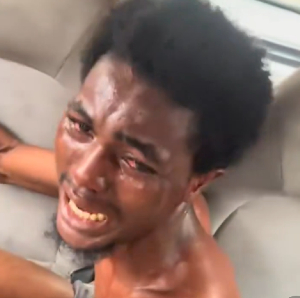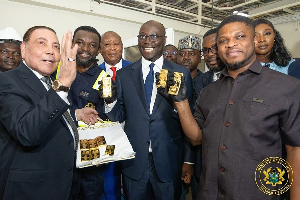By Theodore M.K. Viwotor
As the world marked World Press Freedom Day, a lot of thoughts went through my mind when I took time off to subject myself to some reflections on my decision to become a journalist and what I have experienced so far.
Across the globe, journalism is considered a noble profession that attracts a lot of respect from a cross section of the masses; however, it appears rather unfortunately that some people see journalists as a group of ‘monsters’ that must be avoided if one wanted to maintain a good public image or stay away from trouble.
A lot of things feed this perception that has endangered journalists all over the world and in some cases the hatred for media persons has resulted in deaths and undeserved troubles.
Journalists are seen as gossips who poke their noses into other people’s internal or personal matters, thereby exposing such people to unwarranted troubles. When you have such gossips around you it is better to shun them to keep yourself safe from trouble, so do some people think.
As a result of this perception, some politicians, organizations, companies and individuals try everything possible to avoid journalists as much as practicable. The very time they realize that a person is a journalist, s/he is kept at arms’ length as a preventive measure and indeed it is done in such a manner that makes the journalist look like a monster.
I still remember some of my first experiences with this strong perception during my days as intern at The Insight. There was this allegation of a vehicle that had been diverted by an officer of the National Commission for Civic Education (NCCE). Our source of information was emphatic that it was true, giving us documents to support his case.
As the ethics demand, we undertook to get the other side of the story and I was assigned by my then editor, Peter Apisawu. I went to the office but couldn’t meet the woman in question so I left a message to the effect that I was investigating allegations leveled against her and would appreciate her response. I left my number behind for her to get back to me.
She later called fuming with rage, and questioning how I could accuse her of wrongdoing. This took us aback since I had specified that it was an allegation. She told me I was lucky she was not around when I came there else she would have used her shoes to attack me. Peter Apisawu, who overheard the conversation between us, decided to speak to her. It was another hot argument that resulted in a threat of court action from her, to which Peter responded she could proceed to court.
Later, the late Dr. Larry Bimi, head of the institution, intervened and invited me to his office to explain matters on the allegation. After a short time with him the explanation put matters right and it came out that there was no credibility to the story. But obviously the woman’s reaction was purely a case of wrong perception.
Many journalists face similar challenges in their practice on a regular basis. I have had to shield my profession as a journalist on numerous occasions to avoid being mistreated. For instance, I was invited by a friend to help on a case at the police station; I decided not to disclose my profession for obviously reasons.
That decision was the result of an experience I had in the hands of some customs officers who started hurling insults on me the very time they got to know I was a journalist. I was helping a friend whose vehicle was arrested for false documentation. I went there as a friend without any intention of reporting or exposing anyone. However, something happened and one of the officers got to know I was a journalist and that spelt my doom. He stopped the process and asked me to leave, calling his colleagues attention to me. The shame was remarkable. I had to leave ‘enemy’ territory with my head bowed. The other officer at the then CEPS Headquarters was quickly told and he refused to have anything to do with me. It was a big shame that the profession is misunderstood.
This incident taught me another lesson about journalism that has helped me a lot in my practice. The lesson is that, journalism is a profession most people think they know much about but in effect, a larger section of the public-from the highly educated to the least- knows virtually little or nothing about.
From the outsider’s perspective, journalism is just a matter of telling a story or giving account of an event. It is also, to some, a matter of exposing acts of corruption in the system as well as bringing to light information hidden from the public.
The media plays all these roles but there is more to what meets the eyes and many know little about what goes into those roles. It is widely perceived that information is available to media persons at all times because per their position journalists can easily enter any office to get the information.
This perception is not always the case in that, even information considered ordinary and harmless is kept away from journalists because the ‘monsters’ would screw it and put you in trouble.
Access to information is one of the most difficult aspects of the work. The refusal of officers to release information to journalists is one of the reasons journalists produce half-baked stories and in some cases, report one-sidedly.
There is a strategy or attitude some public officers adopt to kill stories naturally and frustrate the work of the media-the use of officialdom. One common thing they do is to ask you to formally request for information on an issue under investigation. When you do so, you may have to wait for eternity to get a response, especially for those in the print media. When a journalist finds himself in such a situation, one of the options is to resort to a strategy that would ‘generate’ an automatic response from evasive officials.
For instance, if there is an issue before the police that has already gained public attention and the journalist is required to write formally for information. For weeks, he gets no response from the police and this goes into months whilst the public wants to know more about it, does the journalist keep mute along with the police or attempt the publication of what he has? One may opt for silence as suspicion on the matter grows whilst another may try giving out the little he has. Which is better? Food for thought. The Right to Information Bill need to be given early accent to make the work better.
Do journalists know everything?
This is another wrong perception people have about the profession that misleads them into expecting too much from practitioners. It would interest many to know that journalists know nothing and may even be more ignorant than those they try to inform or educate. Nevertheless, to be a good journalist one needs to be very intelligent and read broadly.
The profession doesn’t require that practitioners should know everything from Archaeology to Zoology, as may be expected by an information-thirsty public. The media is a channel through which information is packaged and presented to the public. It is not made up of the most intelligent or knowledgeable people in society but rather those who have learnt the act of communicating messages.
Interestingly, because the journalist is expected to communicate every message from A to Z he is compelled to research and do a lot of background work on any matter that comes before him, thereby sometimes wrongly presenting him as the most intelligent person in society. It is very common to see media houses relying on media men to discuss all sorts of issues when the technocrats are available to do so; this can also be blamed on some of the technocrats for failing to know more about the media in order to use it to educate and inform the public the more. The media too fails at times to make use of these technocrats.
The perception that media persons know everything is also fuelled by the attitude of journalists to the effect that they can address every issue that comes their way instead of being honest enough to admit it when the matter is beyond them. It is not the best to always have journalists discussing matters on newspaper review segments in the electronic media after they have presented the issues to the public through the newspapers. It would be better to bring in the technocrats to do the discussions to further enlighten the public. The constant feature of the same journalists on such discussion platforms contributes to the belief that they know everything.
To be continued.
Your comments are welcome mviwotor@yahoo.com
Opinions of Saturday, 7 May 2016
Columnist: Viwotor, Theodore M. K.














